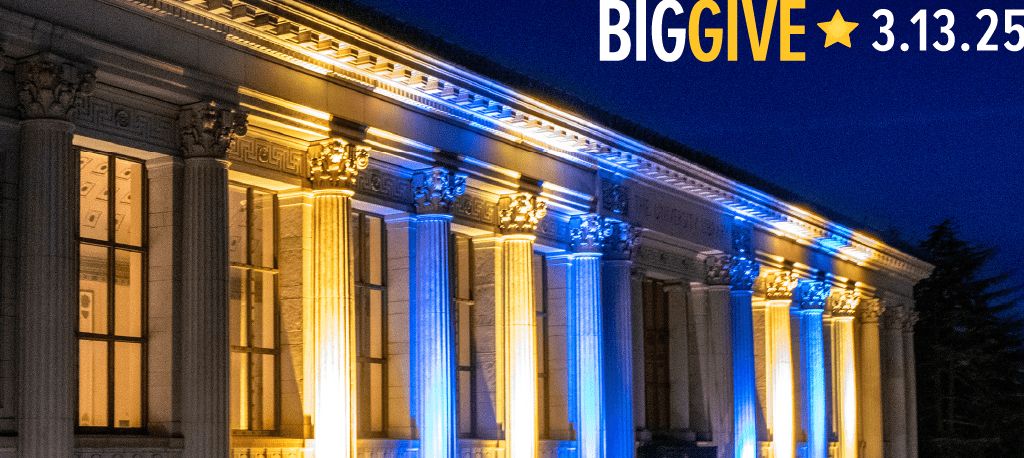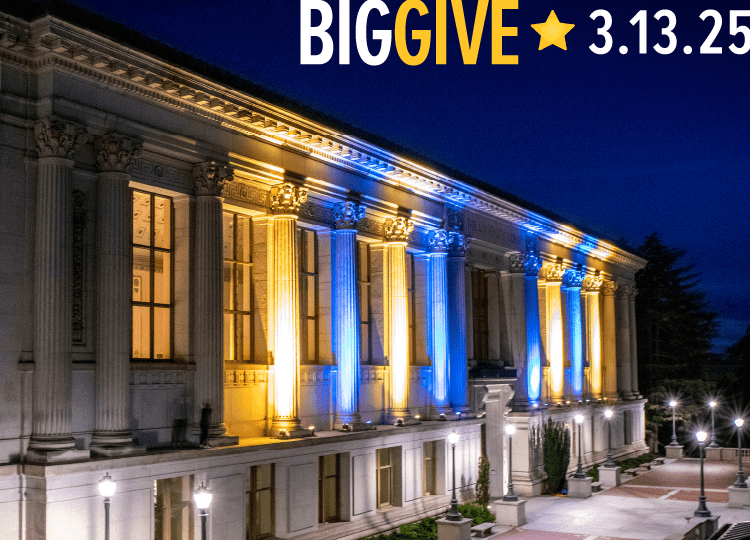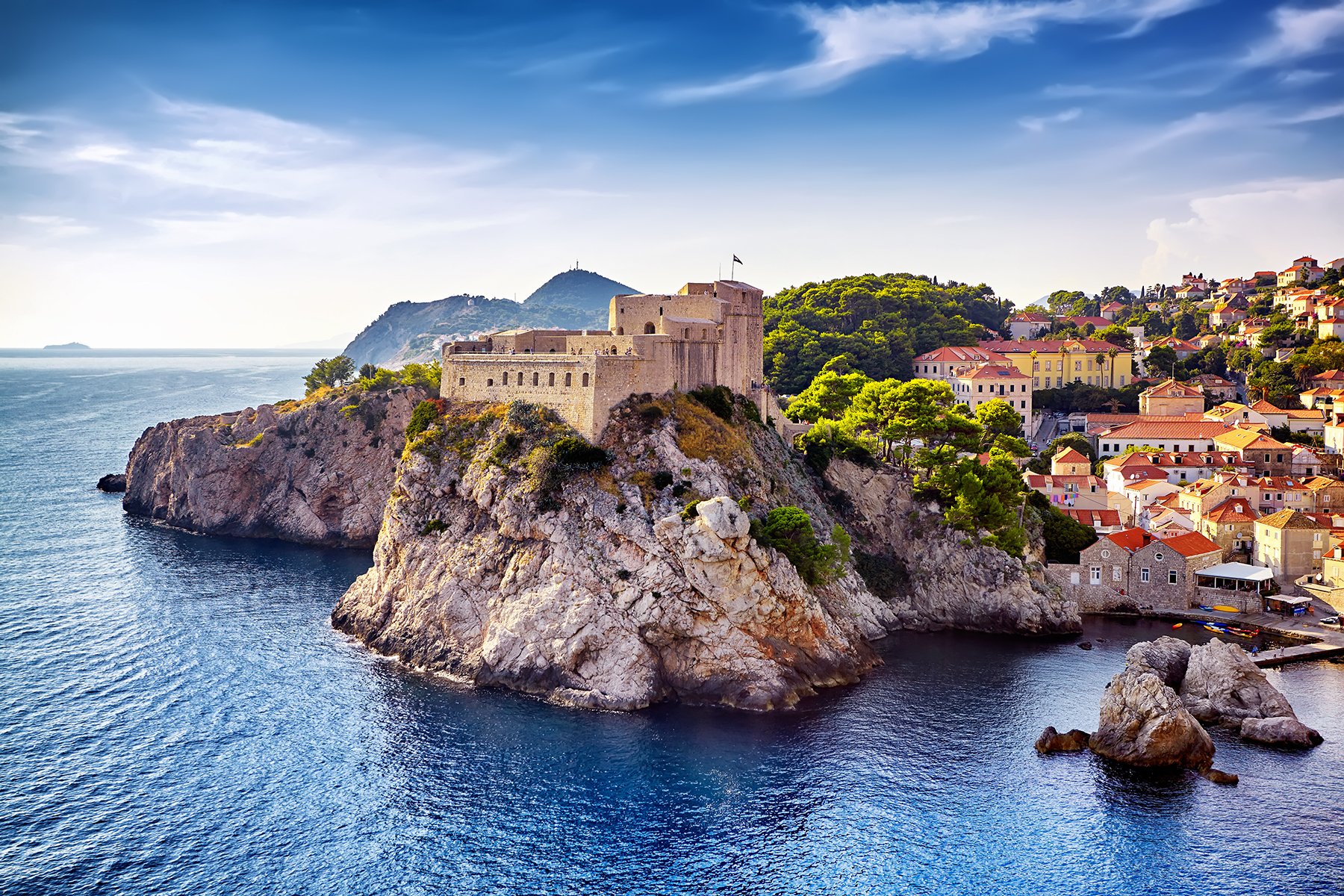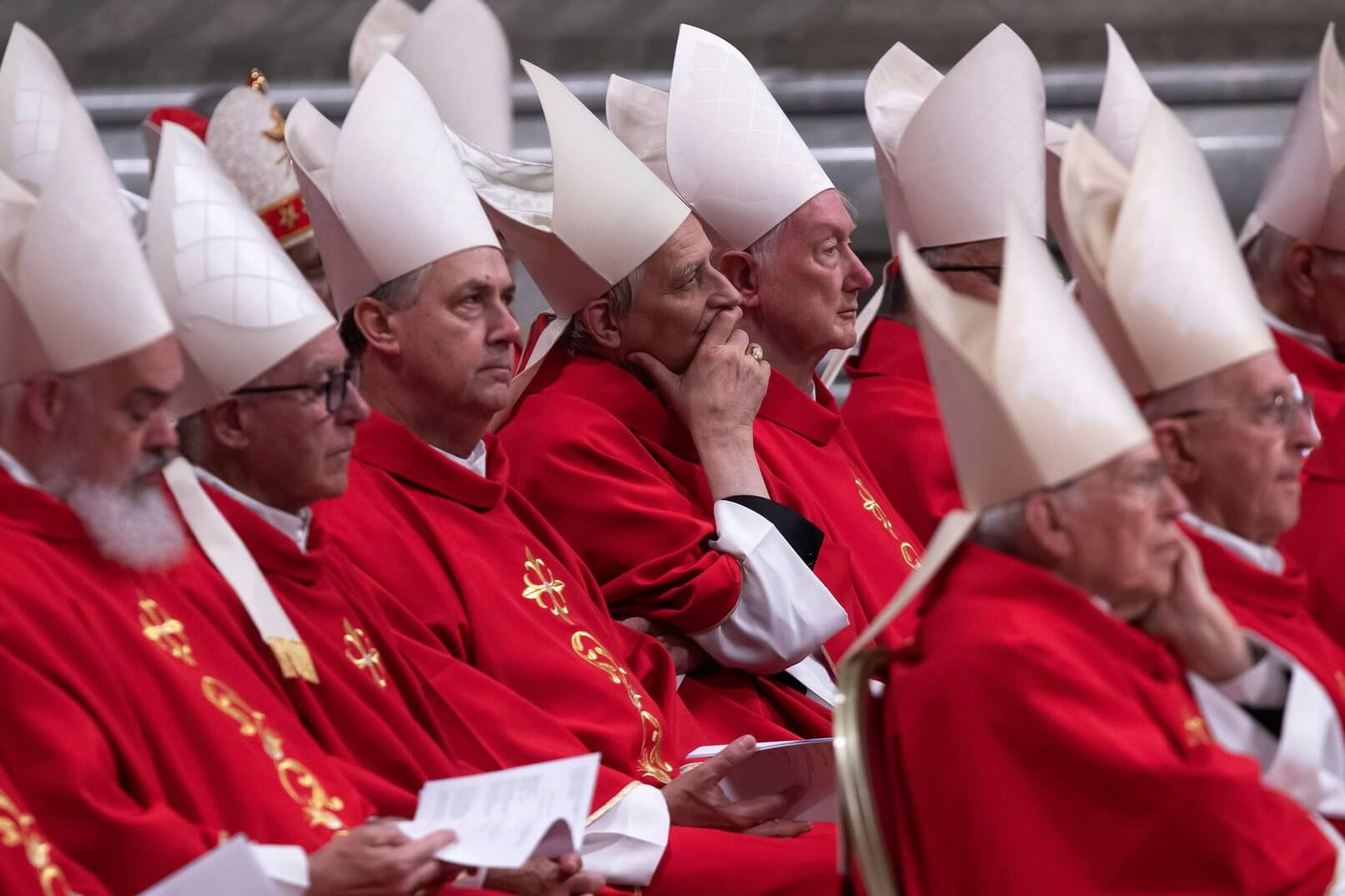On April 20, 2025, Catholics around the world gathered to celebrate Easter, the holiest day of the year. The following morning, Pope Francis died at age 88, ending a dozen years at the helm of the Catholic Church.
Who will succeed Francis is the source of much debate and speculation—only to be determined during the upcoming papal conclave. Papal elections procedures have evolved over nearly two millennia, with some of the earliest evidence dating back to the early medieval period. During the upcoming conclave, which is scheduled to begin on May 7, the 135 cardinals eligible to vote—those under the age of 80—will gather secretly in Vatican City’s Sistine Chapel to discuss and elect, with a two-thirds majority vote, the church’s next leader.
As the Catholic Church stands on the cusp of another transition of power, we spoke with UC Berkeley Professor Thomas Dandelet, a scholar of early modern European history (1350-1800). He has written extensively on Italian and Spanish politics, society, and religion, including in his first book, Spanish Rome, which dealt heavily with the politics of the papacy during the Spanish Empire. A practicing Catholic, Dandelet offers insight into historic and modern conclave politics, the significance of the upcoming decision, and the enduring legacies of power within the Vatican.
This conversation has been edited for length and clarity.
Can you talk about why this process of electing a new pope has to be so secretive?
The stakes are very high, in part because people have very different ideas of what direction the church should go. Just like in our presidential elections, there have always been factions that disagree very seriously. The secrecy has to do with wanting to make sure that people can speak freely in the conclave, but also that sensitive material doesn’t get out into the public that, frankly, the church doesn’t want to be public. I think, at this point, usually people do know what the positions of most of the major cardinals are, but there are almost always some surprises that come out of histories of conclaves when we actually get to read the records years and years later.
In the period I study, the big issue was that who became pope had a lot to do with international European politics. And the two big factions that tended to be fighting over who got elected were the Spanish monarchs and the French monarchs, who were usually at odds with each other in Europe and at odds with each other in the conclaves. That didn’t mean that they always got their way, but the kings of Spain, the kings of France definitely had their favorites. [And] there were people representing the king’s interest in the conclave.
What you’re describing seems to suggest there’s external influence—a kind of porousness from what’s happening on the outside to decision-making inside. How political is this process?
During the conclave, they literally lock the cardinals in the hotel within the Vatican City, and they’re not allowed to watch TV, have outside contact. And that’s in part because people do worry about outside influence. In the early period that I’m studying, people were worried about things like bribery and people trying to throw an election. I think that’s probably a big part of the reason that you have an enclosure, you have the conclave sealed off. These days I think it has a lot to do with making sure that the deliberations of the cardinals are not influenced by outside forces.
Just to give you an example, I read just the other day that people are worried about the influence that Donald Trump might have on the conclave when he’s in Rome for the funeral. In our own day, political leaders have a lot at stake in who gets elected. Obviously Francis was a pro-immigrant pope, was very much on the side of social justice, Latin American issues, and he clearly never got along with Donald Trump. He got along really well with Joe Biden. So there’s always that kind of international element, and it still remains today.
The next pope could potentially call another general ecumenical council, and people could start to push for some really serious changes that a lot of folks have been calling for some decades: women being ordained, our policy towards any number of social and moral issues.
Do you think that it’s possible for Trump to have an influence on this current conclave?
I’m sure he’s been trying. There are clearly conservative bishops that are more open to the kind of issues that the really conservative Catholics in America are advocating for. There’s actually a megafaction of Catholics meeting—I just read the other day—in Florida, and they have some really conservative bishops on their side. There are ways that people get information out and contact folks before the conclave, so it’s certainly conceivable. I would bet that the Trump administration is trying hard to influence the conclave.
So, I have to ask: I’m curious if you’ve seen the movie, The Conclave, and if you have thoughts on how accurate its portrayal of the process was.
I have seen the movie, and I thought they did quite a good job. Ralph Fiennes was excellent as the person in charge of the conclave—there is someone who has that role. In terms of the factions that emerge, I thought they did a pretty good job representing that as well. You had the more moderates, you had a very conservative faction.
There’s always lobbying among the cardinals themselves because there’s a series of votes that take place, and it’s extremely rare for the first vote to produce a pope. So back and forth discussions happen in the conclave to debate who it’s going to be.
It was a Hollywood production, so there were issues that I thought were a bit sensationalized. I thought that the end of it was pretty hard to believe as something that could really happen.
Something I noticed was that the women, the sisters, were not really allowed to be involved but were still around and occasionally part of the conversation.
There are definitely sisters that do a lot of work in the Vatican. I thought that the role of Isabella Rossellini [Sister Agnes] was probably a Hollywood creation—giving her more power than anyone actually has. But the sisters are definitely around doing a variety of work for the conclave. I doubt whether that degree of influence is happening, but not completely outside the realm of possibilities.
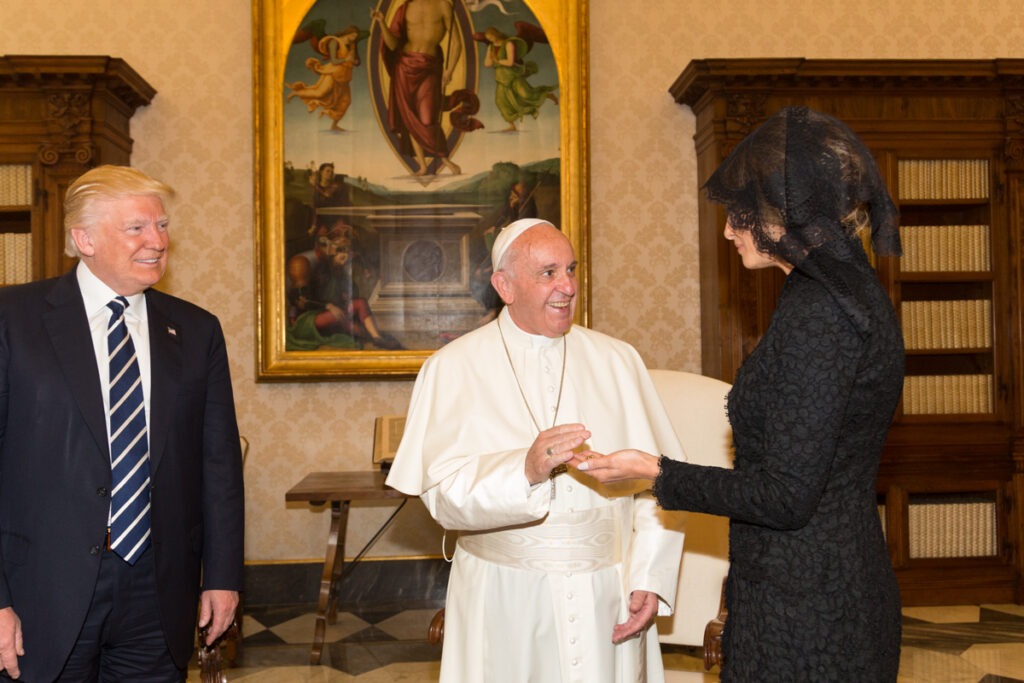
As you said, Hollywood tends to play up the drama. But it doesn’t seem completely impossible that, in the process of these discussions, scandals would come up, people’s skeletons would be unearthed. Is that something we know to happen?
In the 20th century or so, I don’t think we’ve heard anything about major scandals coming out. But certainly people’s personal lives are being vetted and discussed at length. Pope John Paul II, we knew about a girlfriend that he had when he was a young man—or a woman who he exchanged letters with for a long time. Obviously that is of much interest to the press.
Famously, the Borgia popes in the late 15th century, early 16th century, Alexander the 6th, his family was the focus of all sorts of gossip about their moral failings. There was a bit more grist for the mill in that regard because the moral standards were, let’s just say, a bit more relaxed for popes than they are in our day. A number of popes, before they were elected pope, had children. That’s something that has not been going on for a long time.
The fact is, most people who get to this stage of the game, have already been vetted in the context of being high-ranking, very public officials in the church.
How significant is this decision for the legacy and future of the Catholic Church?
The pope still has a tremendous amount of power. It’s pretty much one of the last remaining absolute monarchs that we have, certainly in Europe. He can produce surprises. Probably the most obvious example of that is the pope has the power to call a general ecumenical council of the worldwide church, which can really change the course of church history and the policies of the church. So when John XXIII proclaimed the Second Vatican Council in the early 1960s, that was a big surprise. The general understanding of historians is that the cardinals had elected this old bishop, this old cardinal from Northern Italy because they figured he’d be a caretaker pope. He was old, and they thought he wouldn’t be around very long and they would be able to sort out what they really wanted. But then he came out and surprised everyone. We’re still living in the Second Vatican Council world. So the next pope could potentially call another general ecumenical council, and people could start to push for some really serious changes that a lot of folks have been calling for some decades: women being ordained, our policy towards any number of social and moral issues.
The pope can speak to things like the ongoing war in the Ukraine and the social policy in Africa. The Catholic Church in America had a tremendous amount of involvement with charitable works through Catholic Relief Services, one of the largest charities in the world, and a lot of that money was government money because they worked as partners with the U.S. government in distributing foreign aid. Well, that just got completely slashed by this administration, and I’m sure the next pope’s going to have things to say about those kinds of policies. The stakes are always high in a papal election and probably never more than now.
I understand that Francis had a good amount of influence by bringing more cardinals into the church, which some have compared to “stacking the court.” Should we expect to see someone following in his more progressive footsteps because of his influence on the votership, or might things swing in the opposite direction?
He did appoint a lot of cardinals. What I remember is that 108 of the 135 people voting were appointed by him. Now, there’s a huge range within that 108 people in terms of whether they’re more politically and theologically conservative or progressive. So, those 108 people can’t be counted on to vote as a block. There’s a better chance that this conclave will elect someone whose big positions align with Francis and the more progressive wing of the church and the College of Cardinals.
But these elections are famous for surprises. I usually read a couple of Italian papers, at least the headlines every day of la Repubblica and Il Messaggero, which are both Roman based [and] have their ear to the ground. They’ll put forward a half dozen or a dozen people that might be electable, but that still leaves a lot of open room.
Would you put your money on any one or a couple of people who you think are most likely to be the forerunners?
I personally like Cardinal Zuppi. He grew up not far from Rome [and], more importantly, was a priest in Rome for quite a long time—a parish priest and a member of a very progressive lay movement, the Sant’Egidio community. He’s the Archbishop of Bologna right now, rides his bicycle around. He was sent to Russia to try and intervene with Putin about the Ukraine war. He helped to broker a peace in Africa, in Mozambique. He has wide international experience and sensibilities but also has his roots in fundamental acts of charity, preferential option for the poor.
I think he would be a really good choice—diplomatic but carrying on the emphasis on ministry to the poor, to the oppressed, to migrants, etc, but at the same time politically savvy.
Are there any promising candidates who aren’t white?
There’s some people that really are hoping that that happens. There’s a cardinal from the Philippines that’s very popular, sometimes noted as a front runner. So, it’s definitely a possibility. Let me put it this way: I wouldn’t bet on this election necessarily, but I would say that we’re going to see a pope from Asia or Africa in the 21st century.
We obviously have had a Latin American pope just elected, which is the first. The church is definitely looking to be more international.
Why not now? Is racism as much an issue in the selection of the pope as it is in other political elections?
I don’t know if I want to speculate on that. In general, if you look at the racial makeup of the conclave, it’s pretty diverse. There are a good number of Asians and Africans, but there’s no question that Europeans still dominate. Are they going to favor a European? Probably. Is that racism or is it about culture and a feeling of who’s best equipped to lead the church? I’m not sure I would attribute all of it to racism. I think a lot of it has to do with what people’s profiles are and what their experience has been.
How much influence might an outgoing pope have on his successor?
I’m sure that he had ideas about who would be a good pope, and I’m sure that every time he chose a cardinal he was thinking about that. Now did he have a list of favorites? Did he have a top ten? Probably in his own head. I’m sure he didn’t write it down anywhere. I’m sure he wasn’t lobbying for it. That’s pretty much unheard of.
Lastly, what are you most interested in during this papal transition? What are you paying attention to?
There are a number of crises in the Catholic world. Certainly in the American Catholic Church, we have had a shortage of clergy now for decades. Churches are understaffed, lots of parishes are being consolidated, you have priests, frankly, being really overworked, not enough seminarians to replace them. And so I think the issue of married priesthood, of women being ordained priests, and women being ordained deacons as a first step, that’s a critical issue for the next papacy. I would certainly like to see someone carry on Francis’s emphasis on the poor, on the press, on migration, and in general the continuation of a progressive Catholic Church.


